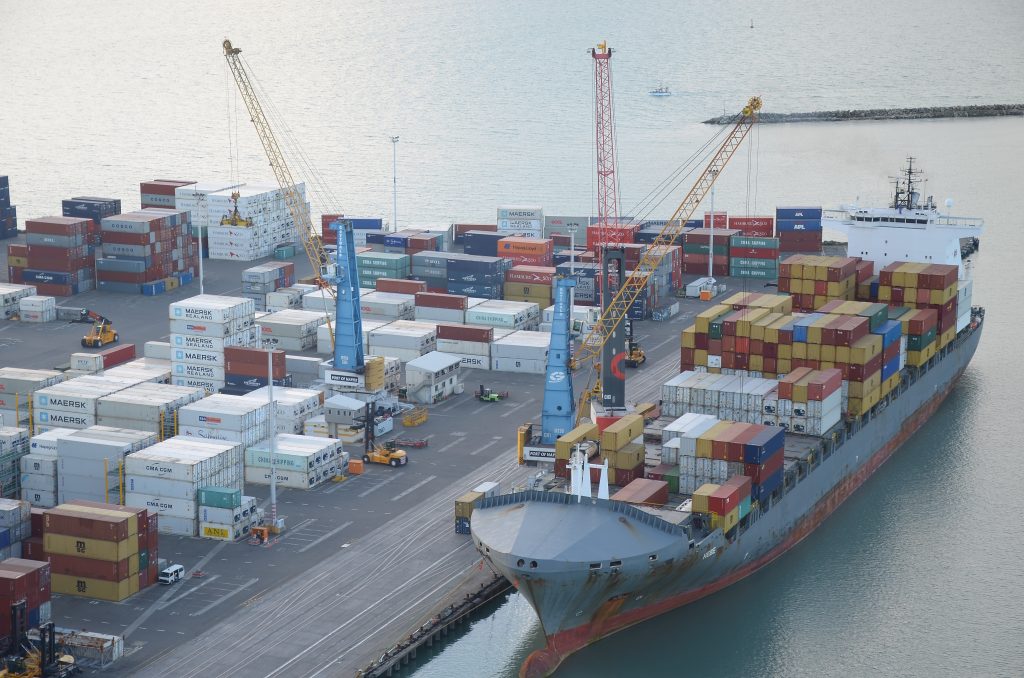A new bill was introduced in Congress last week that aims to tackle the enormous amount of pollution generated by the ocean shipping industry. Introduced by Congressman Alan Lowenthal (CA-47) and cosponsored by Congresswoman Nanette Barrigan (CA-44), the Clean Shipping Act aims to eliminate pollution from all ocean shipping companies that do business with the U.S.
There are two main parts of the bill that you need to be aware of:
- There will be deadlines for reducing carbon in the fuel used by ships with the goal of achieving 0% carbon by 2040. The percentage of carbon intensity that would be acceptable in fuel would gradually decrease over time, starting with a reduction of 20% by 2027, 45% by 2030, 80% by 2035, and 100% by 2040.
- The emissions of pollutants from in-port ships will be eliminated by 2030. By Jan. 1, 2030, all ships at berth or at anchor in U.S. ports would be required to emit zero greenhouse gas emissions and zero air pollutant emissions.
The Clean Shipping Act is modelled after Europe’s Fit for 55 initiative. It would be enforced by the U.S. Environmental Protection Agency (EPA).
The shipping industry emits almost 1 billion tons of climate pollution per year, which on its own produces more emissions than all but five individual countries in the world. The shipping industry could account for 17 to 18% of all global emissions by 2050 if steps aren’t taken to correct it, according to Congressman Lowenthal’s website.
The International Maritime Organisation (IMO), the United Nations agency that regulates shipping, has set a goal of cutting shipping emissions at least 50% below 2008 levels by 2050. However, the IMO’s strategy is not aligned with achieving the goal of the Paris Agreement to limit the global average temperature increase to 1.5 °C to avoid the worst impacts of climate change. The additional legislation was introduced to close that gap.
“We no longer have the luxury of waiting to act,” Congressman Lowenthal said. “We must face the fact that we are at a tipping point in the climate crisis; we must move beyond fossil fuels, and that includes air, land and sea transportation sources. No emissions sources can go overlooked. This legislation will set clear standards and drive the investment and innovation we need to transition to a zero-carbon future. It will clean up our ports once and for all, with a straightforward nationwide policy. This bill is the right policy for the future of our planet, for the health of our communities, and ultimately for the resiliency of goods movement.”
You can read the full text of the bill here.
To stay informed on import and shipping challenges and other important updates, stay connected with a customs broker.




